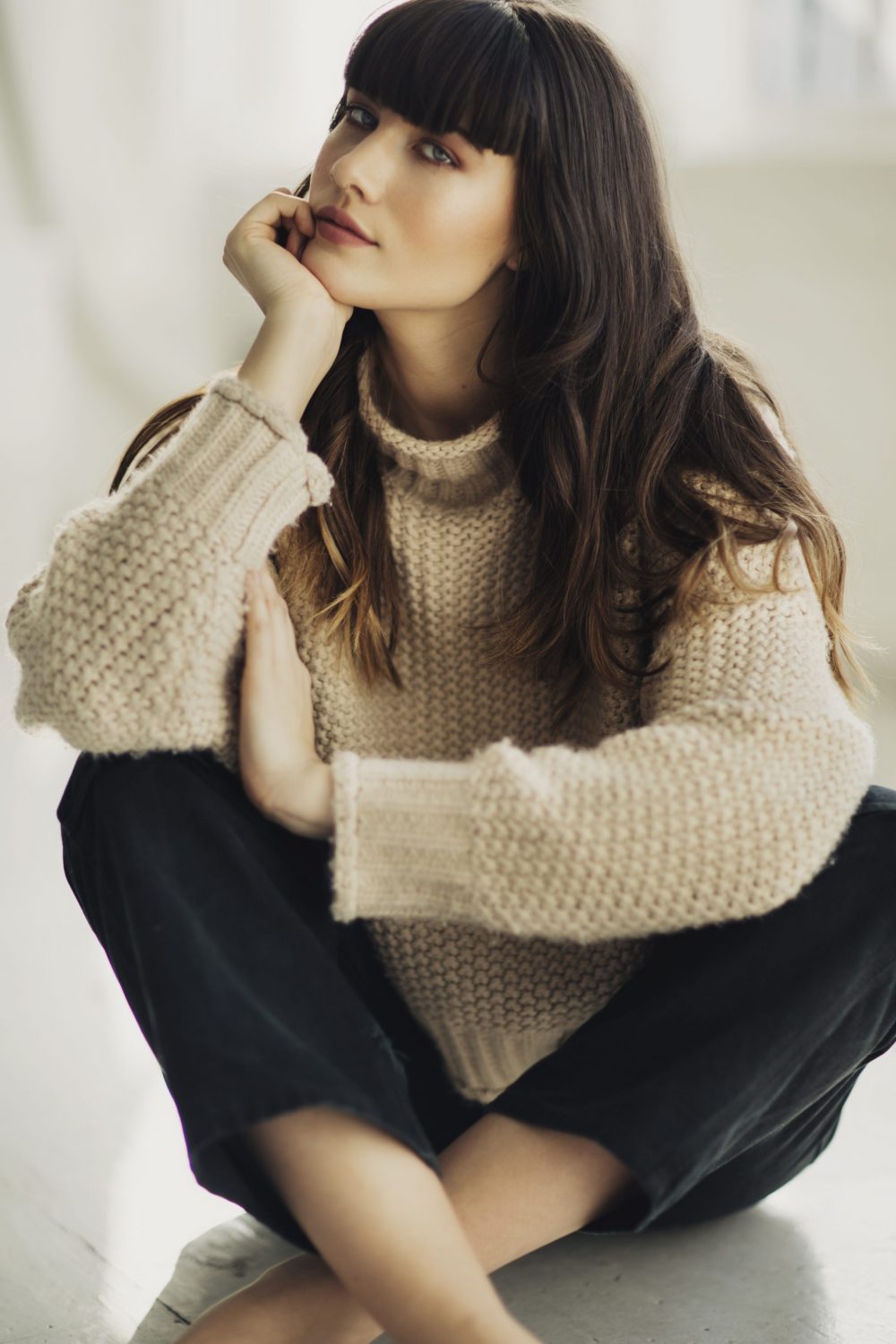Meet the millennial model-activist, Jess Miller, helping to reshape the business.
Standing six feet, two inches tall, Jess Miller commands attention—not just for her height and her innate sense of style, but for her sense of self, which transcends the many limitations that her profession has historically imposed on young women. It is a rarity to sit down with a model and find beneath the requirements of beauty and grace an intelligence that burns brightly and engages with ideas and issues that extend beyond herself.
Catching up with the Seattle native, who has relocated to New York City to pursue her career, I was delighted to dive into a far-ranging conversation that encompassed everything from identity (she’s queer and Christian); to career goals; to the meaning of existence, and the role of spirituality in a meaningful life.
Miller is one of a new generation of category-defying queer models who are challenging identity labels as they negotiate the vagaries of the label-obsessed fashion world. But while many older folks puzzle over what millennials want, Miller has already made up her mind: everything. “I want to be a 25-year-old with a bowl cut and I want to be an 80-year-old with long gray hair—and I can be all these things.”
Already, she’s making inroads into a notoriously tough business while examining and developing her own values. As a teenager, Miller started exploring spirituality and found that faith gave her “a sense of purpose and an awareness that the world did not revolve around me. It is an ecosystem of beings who are just trying to do good.” For Miller, sexuality and spirituality, ambition and compassion are not incompatible.
“My faith is about radical inclusion, about using spirituality as a means for healing and a means for connecting with people who otherwise you wouldn’t have anything in common with. It’s a bridge builder in the same way that we could be in a queer space and we might have completely separate interests—but I know elements of your suffering and your joy, and we can share on a more eternal plane, and it’s not just surface level. We’re all in this together.”
The narrative of Christianity—which has been co-opted by the far right and can marginalize minorities—is for Miller simply a way of seeing goodness in other people.
“I’m never going to be the person who’s trying to tell people about Jesus,” she says. “I’m going to be the person who’s extending care to people who the world has written off. There’s a ton of queer people who want to be Christian or who are Christian and are being told, ‘You’re not allowed’ ”—not only by Christians but by other queer people.
Historically, faith might be connected to the repression and control of sexuality, but Miller would like to rewrite that narrative. In a similar way, modelling and fashion have been about the repression of women and their commodification. Miller also hopes to change that.
“Modeling was never my intention—it was always an interest and one that I wanted to pursue but that I thought wasn’t attainable because I didn’t fit the standard size: I’m too tall and I’m not skinny enough. I’m already outside the box for what’s supposed to be standard, so it was just a childhood dream.”
But then Miller entered a plus-size model search run by Universal Standard, the New York–based label that specializes in realistic sizes (the majority of American women are size 10 and above). As the winner of a nationwide competition, Miller felt encouraged to turn her childhood dream into a reality and moved to New York to work as a model.
She is now managed by The Lions management company, which also represents Stella Maxwell and Kate Upton. But far from letting success go to her head, Miller has decided to challenge the exclusivity of fashion: “What am I using this platform for? Is it just to sell clothes? Is it just to help the rich get richer?
My whole purpose in being a model is to be a physical, visual representation of people who don’t see themselves as or feel like they are desirable, people who don’t see that they are what is in fashion. I want to empower the people around me. I’m not in it for the money or for the Instagram likes.”
In this #MeToo era, Miller sees herself as a model-activist expressing a spectrum of possibilities rather than conforming to any particular category. Inspired by androgynous models such as Oslo Grace, and activist models such as Cameron Russell, Miller is part of a new generation of New York–based models who don’t have to compromise their sense of self to make headway in the industry.
She’s soaking up the challenges and the excitement of living and working in New York, and dreams of walking in Fashion Week for designers she admires, such as Christian Siriano. She also has her Big Apple fangirl moments, such as running into Gloria Steinem and Karlie Kloss at the Gramercy Park Hotel, but none of that defines her concept of success.
That will depend on the extent to which she can fully express her own identity. A self-described “kind of a nerd at heart,” Miller plans to go to graduate school to study theology and obtain a masters of divinity (MDiv) degree with an emphasis on “queer and womanist theology.”
“It’s about taking the oppression out of faith traditions and repacking it so that spirituality can be liberating and not harmful to black, femme, queer, and other identities,” she says. She’s also considering social work and clinical mental health counselling as vocations, and at just 25 years old she’s still exploring the breadth of her passions.
“I’m not ready to one-track my mind. It’s in a diversity of worldviews that we can get a sense of what the Creator is or what our purpose is to be on this earth. When we can listen to all perspectives it’s only going to get better.”
